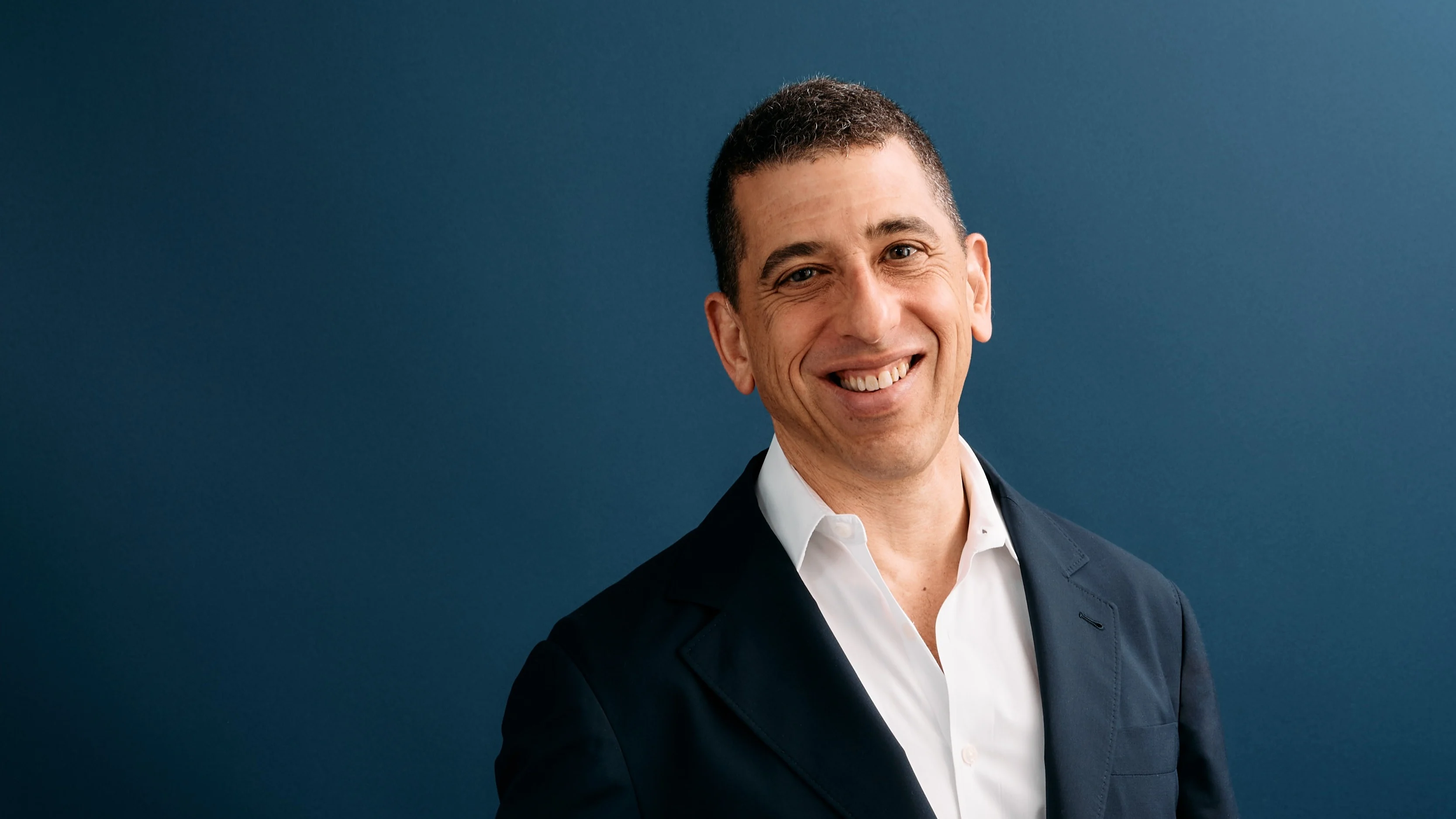May 15, 2025
Article
JPMorgan's $250M Bet on Fixing Employer Healthcare
View all topics
By Wendy Diller

Overview
After the collapse of the Haven venture, JPMorgan Chase launched Morgan Health, investing $250 million into startup-driven solutions aimed at transforming how employers deliver and pay for healthcare.
Dan Mendelson leads Morgan Health’s startup-focused strategy to improve healthcare for American workers
When Haven, a joint venture among JPMorgan Chase, Berkshire Hathaway, and Amazon, launched in 2018, the bold ambition to deliver better, lower-cost care to more American workers made headlines. But by 2021, the collaboration collapsed spectacularly, plagued by complex operations and conflicting goals.
JPMorgan Chase wasn’t willing to give up. Acting alone, the bank created Morgan Health, a standalone business unit, backed with an initial $250 million to invest in startups developing innovative, data-driven, value-based care.
Its investment strategy aimed to empower market-tested solutions with intensive data analytics, strong management expertise, and a ‘learning lab’ approach to pilot and refine healthcare in real time.
To jump start the effort, JPMorgan Chase hired Dan Mendelson, a veteran of healthcare policy, consulting and private equity. His mission was to support startups that are radically improving the quality, affordability and accessibility of employer-funded healthcare benefits.
“Employers can and should be doing more to improve the value of the care that they offer employees.” Mendelson said. They should also be using higher quality data and analytics to understand how their plans are used and delivering ROIs.
From the White House to the Boardroom
Mendelson’s varied background gives him an edge in delivering on healthcare goals that have frustrated many. As part of the Clinton White House, he played an important role in policy reforms that systemically impacting how the U.S. delivers and pays for healthcare. Some of these efforts became the foundation of current Medicare Part D prescription drug benefits, which Congress enacted in 2005, and others informed the current healthcare IT infrastructure, paving the way for uniform data standards.
After leaving the White House, he founded Avalere Health in 2000, building it into an influential, high-profile healthcare policy consulting firm in Washington DC. He sold it in 2015 to Inovalon, which provides cloud-based software solutions for data-driven healthcare. He then became an operating partner at Welsh, Carson, Anderson & Stowe, a private equity firm focused on healthcare and technology.
Morgan Health’s Portfolio is Built to Scale
Mendelson’s group now employs about 30 people, half of whom focus on investments, while the rest are experts in data analytics, policy research, and consultative services. The team engages with the founders of Morgan Health’s portfolio companies on value-based care strategies. As of May 2025, Morgan Health has invested $217 million in nine portfolio companies, with an average investment of $25 million.
The portfolio addresses four Morgan Health priorities: improving primary care and preventive services; optimizing care navigation; leveraging data on behalf of patients; and solving the employee benefit challenges facing small businesses.
The team screens about 400 companies a year, seeking to add those with strong potential to deliver and scale. Companies that specialize in oncology and kidney care and genomics are also of interest, although the investment group has not yet made commitments in those fields.
Eventually, Mendelson would like to expand the remit to tackling the high cost of drug benefits, because that’s where JPMorgan Chase—and presumably other large companies--spends 25 percent of its healthcare budget. Mendelson noted that Morgan Health has looked for opportunities in that space but hasn’t found the right ones yet.
Vera Whole Health: a Flagship Pilot for Morgan Health
For portfolio companies, Morgan Health serves as a “learning lab” that is committed to experimenting with demonstration projects. The group also collaborates with the bank’s HR benefits team on pilot studies for JPMorgan Chase employees, obtaining feedback on new iterations as part of the process.
Mendelson cites Morgan Health’s $50 million investment in 2021 in Vera Whole Health, now part of apree health, as one of its most promising ventures so far and an example of its strategic approach to investing. Vera was founded in 2008 as a regional primary-care practice, headquartered in Seattle, WA.
What set Vera apart for Morgan Health was its focus on sophisticated data-driven population-health strategies for improving patient outcomes and reducing costs, which are metrics of interest to employers, while delivering high quality services, an outcome critical to patients, said Mendelson.
JPMorgan Chase is piloting Vera as an optional employee health benefit in Columbus, OH, where the bank has roughly 40,000 employees. The effort, run as a joint venture, has transformed an on-site, rudimentary preventive care clinic approach that gave out flu shots and band-aids, into a full-service primary care clinic, backed by Vera’s data science infrastructure and delivered by Central Ohio Primary Care, a local medical practice that JPMorgan Chase chose carefully.
JPMorgan Chase deliberately decided to do the unusual, by putting a “very high-quality primary care group on site,” Mendelson said. Many corporate-sponsored clinics are operated by companies with limited knowledge of how to manage the practicalities of on-site, holistic medical care.
As part of the collaboration, Vera is taking on the full risk for the quality and total cost of patient care. In other words, Vera must return money to employers if overall care costs exceed a certain amount, but Vera can also keep any savings it achieves.
Mendelson reported the pilot’s execution has been excellent, delivering both high quality care and successfully integrating data. Vera tracks patients’ health using multiple metrics, including but not limited to glucose tests (A1Cs) for diabetes, cholesterol levels tests for cardiac disease, and compliance with cancer screening guidelines. Preliminary data shows improvement in patient outcomes, with validated results expected to be available in 2026, Mendelson said.
The complete ROI for the pilot is still under evaluation. Mendelson expects primary care costs for the bank are going to rise, but downstream costs will decline. Results will be critical for the bank and also for other large employers that might consider signing on with Vera as it scales.
Another success is Morgan Health’s investment in Cortica Inc., a network for children and adolescents with autism and neurodevelopmental needs, founded in 2017 by Suzanne Goh, MD, a pediatric behavioral neurologist.
The company uses an integrated, multi-specialty care model instead of the highly fragmented system that patients and their families often encounter. Cortica offers medical treatment, neurodiversity-affirming behavioral therapy, speech-language therapy, occupational therapy, parent training, and family counseling. The Cortica network also is configured to support ongoing clinical research on neuroscience, which informs its approach to care.
And Cortica incorporates value-based payment options, which base payments to providers on quality, cost of delivery of care and patient outcomes—metrics that are hard to deliver on because experts often disagree on their relevance.
A Lab to Learn Healthcare
As a ‘learning lab,” Morgan Health has underway roughly a dozen demonstration and other kinds of projects. Not all succeed. A program prioritizing digital primary care didn’t work when employees rejected it. This led the investors to believe that digital care must be integrated into a full on-site offering and not serve as the primary means of communication.
Expanding Healthcare Access for Smaller Employers
In April 2025, Morgan Health co-invested in a $20 million Series A raise by Venteur, a leading ICHRA (Individual Coverage Health Reimbursement Administrator) in Berkeley, CA. Small and medium-sized businesses have increasingly found ICHRA plans attractive to meet the needs of diverse, geographically dispersed employees.
The four-year-old Venteur business helps employers offer high-quality, affordable health coverage to their employees, including tax-free allowances to purchase health insurance plans on the individual marketplace.
Venteur is Morgan Health’s ninth investment and supports its commitment to scaling affordable, value-driven insurance products for employers, said Mendelson.
Looking Ahead: Health Care Transformation is Local
Three and a half years into the endeavor, Mendelson remains optimistic. The Morgan Health team has funded vibrant, operating companies, with whom it works closely. In addition to financial returns, the companies are evaluated on their non-financial performance.
Healthcare is expensive, so not every innovation saves money, but employers need options and ways to monitor the effectiveness of their offerings. Some of the team’s learnings from the data work are illuminating vulnerabilities and informing modifications for the JPMorgan Chase’s employee benefits.
One learning is that ambitious national programs that try to scale primary care have struggled because they are not regionally sensitive to employers. Healthcare is highly local and needs to be addressed that way, Mendelson said.
Companies like Vera Whole Health, which work successfully on a regional basis, have the potential to scale successfully, he added.
“Health system improvement is painstaking work, and that is why it takes so long. Changing a reimbursement system, promoting as it comes down to choices people make at the local level,” he said.




